Lappartient: Chris Froome's case will not be resolved before the Giro d'Italia
UCI talks about reforms, stopping corticoid abuse in L'Equipe interview
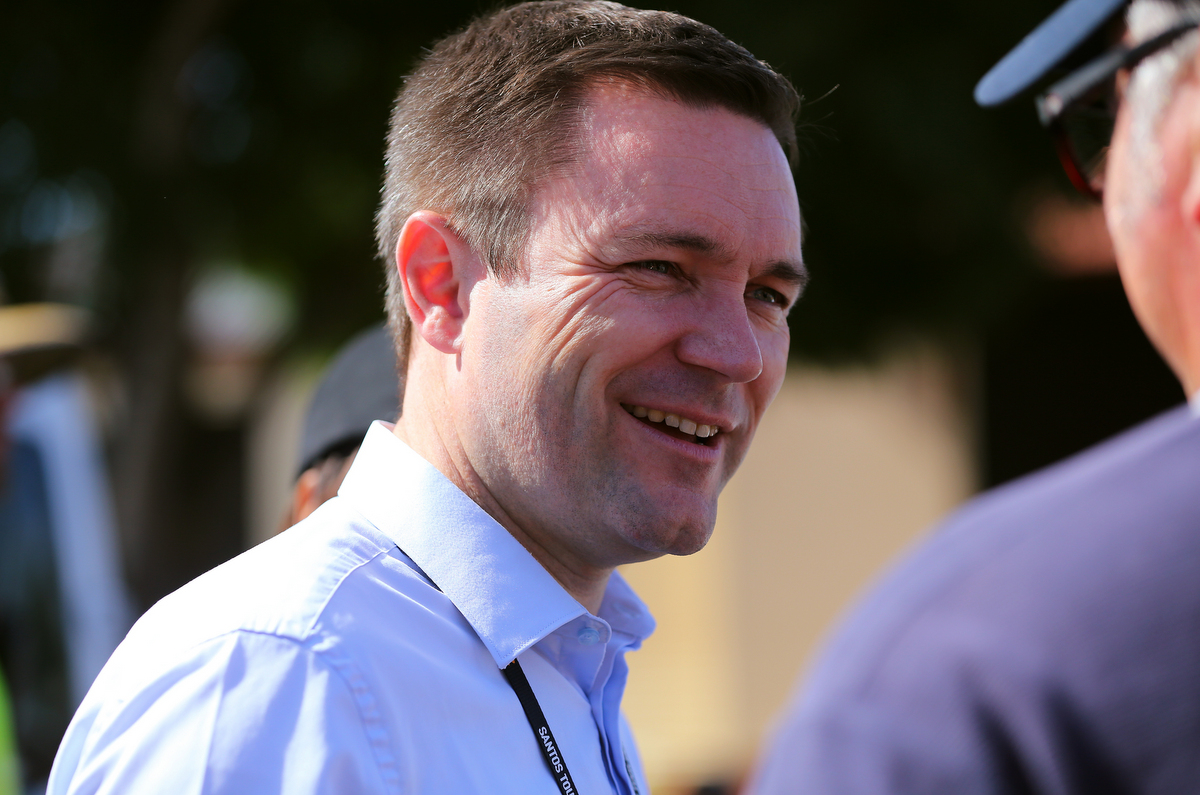
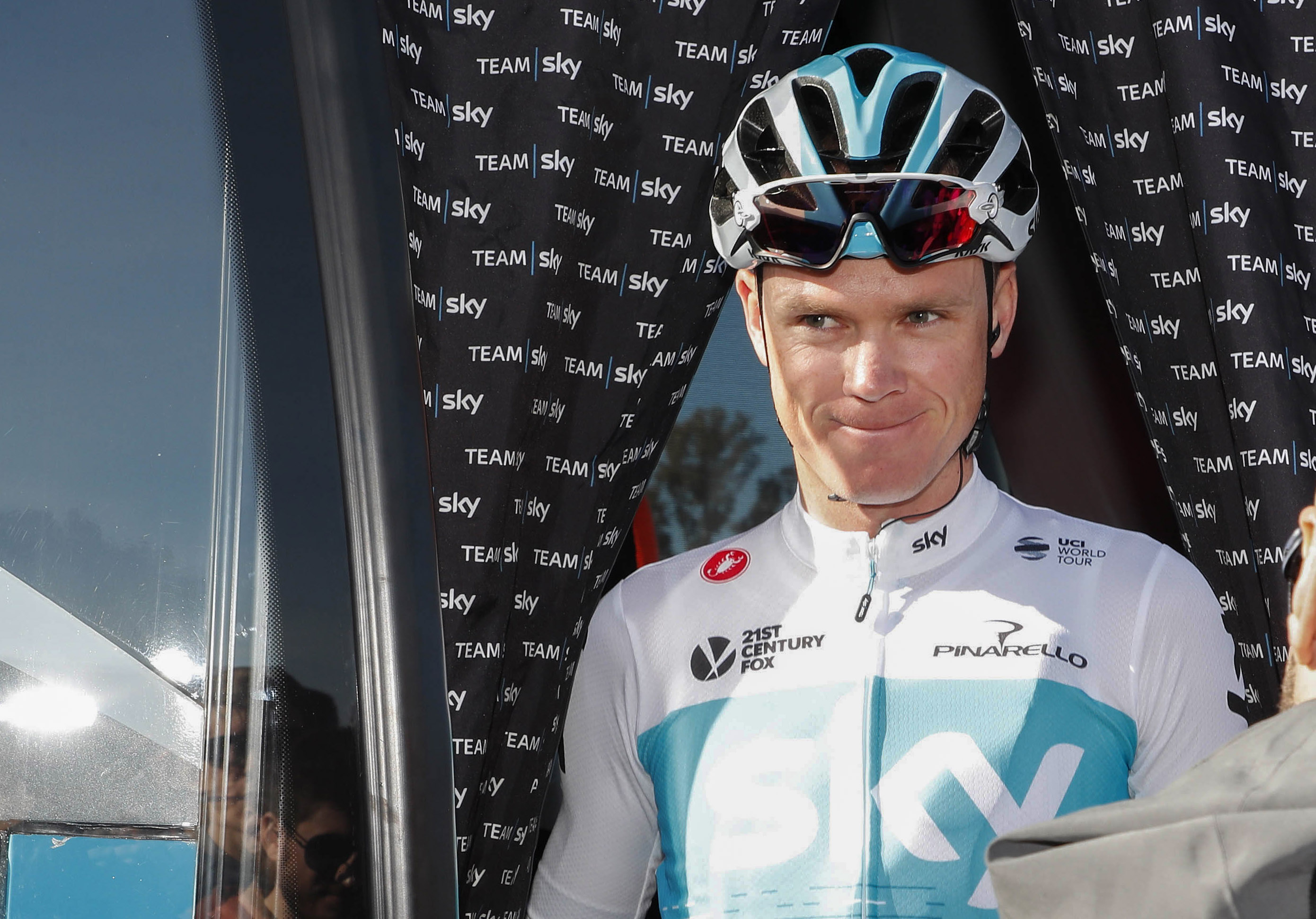
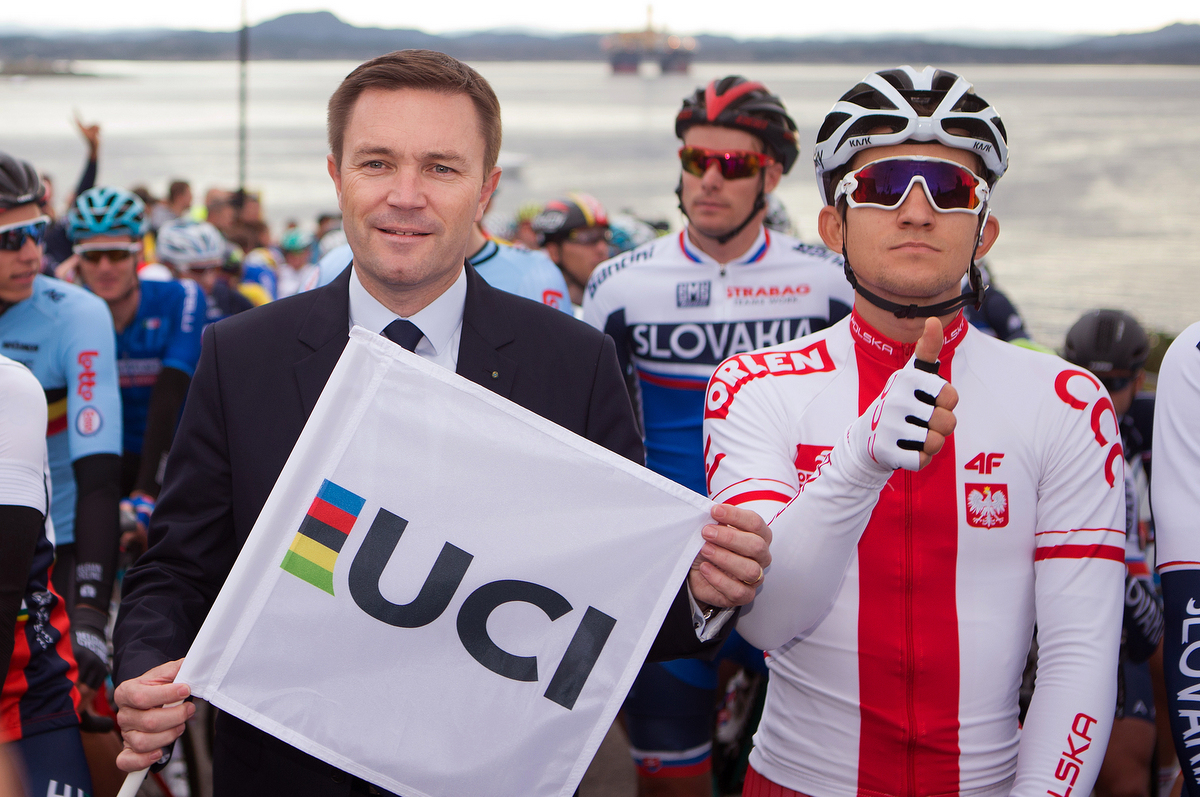
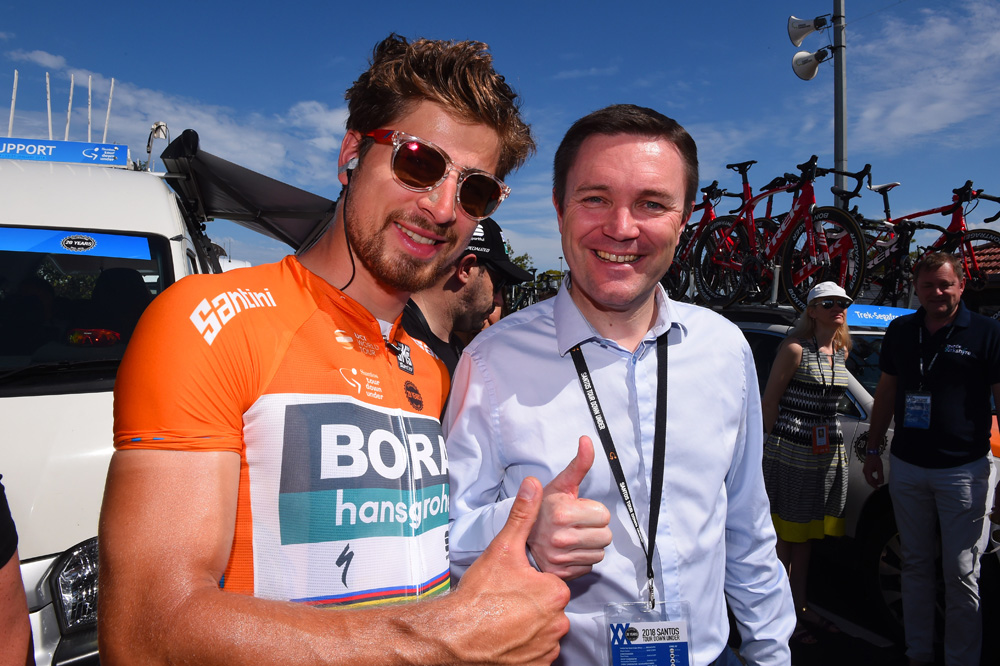
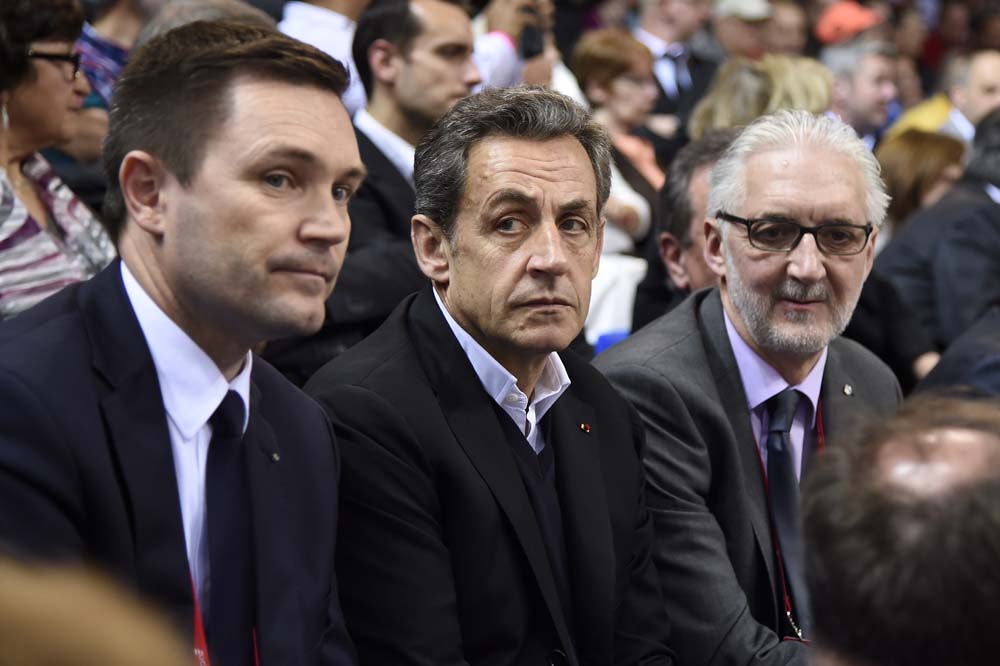
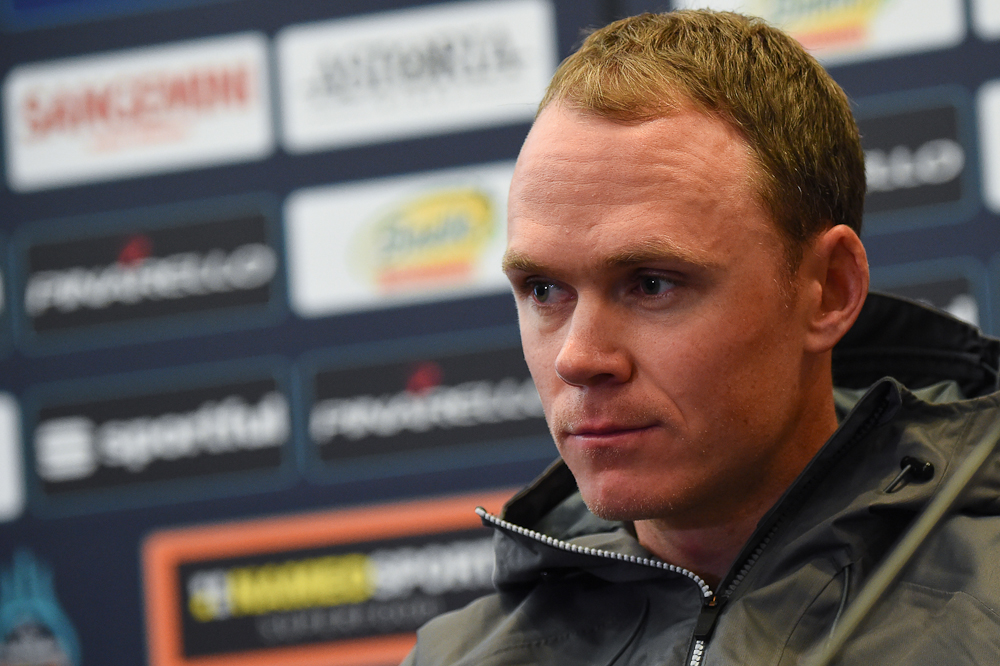
UCI president David Lappartient has all but conceded that Chris Froome will be able to ride the Giro d'Italia, saying a verdict on his salbutamol case is more likely to be reached before the Tour de France in July.
David Lappartient elected UCI President
Lappartient wants to remove mechanical doping as a 'hot topic' in cycling
Lappartient wants CADF to investigate Team Sky
UCI introduces mobile X-rays and thermal imaging cameras to fight mechanical doping
Lappartient: It would be difficult for Froome to ride the Tour de France without a verdict
Lappartient suggested the drawn-out legal case has put race organisers, the UCI, and Froome in an untenable situation, with concerns about how the French public will react if Froome rides the Tour de France subjudice.
In a long interview with French newspaper L'Equipe, Lappartient also talked about the recently introduced steps to deter mechanical doping, reforms to the structure of the WorldTour, further development of women's cycling, including a women's Paris-Roubaix and higher salaries. Lappartient also promised to act against the abuse of corticoids and the painkiller tramadol, saying: "If you take a painkiller to push your limits in a race, that's like doping."
Lappartient, 44, splits his time between being major of Sarzeau in Brittany and UCI president at Aigle in Switzerland. He defeated Brian Cookson to become the new UCI President on September 21 at the world road race championships in Norway. He was informed of Froome's salbutamol case an hour after becoming president, on the same day the Team Sky rider was also told of his case.
Froome's urine sample from an anti-doping control, taken after stage 18 of the 2017 Vuelta a España, contained double the permitted limit of salbutamol. The 32-year-old has always denied any wrongdoing and says he is a long-term asthma sufferer. He insists that he knows the rules and has never taken more salbutamol than he is allowed. As salbutamol is classified as a specified substance, Froome is entitled to race until the case has been resolved.
The Guardian and Le Monde newspaper broke the news on Froome's case on December 13. He and Team Sky have resisted pressure from Lappartient to keep Froome from racing and the Briton is expected to ride the Tour of the Alps next week and then the Giro d'Italia that starts on May 4. He has set himself the goal of winning both the Giro d'Italia and Tour de France in 2018.
Enough evidence has been gathered in Froome case
Lappartient told L'Equipe he has never spoken to Ulrich Haas, the expert reportedly selected to head the UCI's Anti-Doping Tribunal for the Froome case, suggesting the complex case is now somewhere between the UCI Legal Anti-Doping Service (LADS) office and the UCI Anti-Doping Tribunal.
The latest race content, interviews, features, reviews and expert buying guides, direct to your inbox!
Despite claiming not to know the details of the case, Lappartient appears confident the UCI Anti-Doping Tribunal has gathered sufficient evidence to take the case forward and deal with it as an alleged Anti-Doping violation rather than accept Froome's explanations for his high level of salbutamol. He also confirmed that contrary to reports, Froome has not questioned the validity of the salbutamol test, which was established by the World Anti-Doping Agency (WADA).
"We won't lose any more time there. Enough evidence has been gathered," Lappartient told L'Equipe when asked if the UCI Anti-Doping Tribunal will deal with the case more expediently.
"I don't think we'll have a decision before the Giro but I hope before the Tour. It puts everyone, the organizers, the UCI and the rider himself, in an untenable situation. We don't want to see a rider targeted by part of the public."
Lappartient suggested he is trying to somehow protect Froome from public criticism during the Tour de France, while also protecting the image of the sport.
"I don't know how the public will react. He's ridden two races (the Ruta del Sol in Spain and Tirreno-Adriatico in Italy) but not in France. Most people are well behaved but there are always some who get fired up and who are less respectful of the rules. Our goal is not to place him in such a situation.
"I honestly thought it would all be settled sooner. I'd imagined that it would be done for the start of the Classics. But the whole procedure is complex. He has more resources than the others and has good lawyers, like we do. Because he argues that he has followed the rules, that has made the investigation a lot bigger."
Mechanical doping and cycling's image
Lappartient lead the presentation of the UCI's new measures against mechanical doping on March 21. He was often critical of the simple tablet device introduced by predecessor Brian Cookson but is more confident that the new mobile x-ray device used at the Classics. Other technology could include thermal-imaging cameras in races, new tablet devices, with RFID tagging and the use of miniature magnometer trackers also options for the future. There are currently no plans to create video analysis software to calculate rider power outputs.
"I thought that we hadn't taken enough measures but now I am convinced that our controls are sufficiently dissuasive to make sure that it (mechanical doping) cannot happen," Lappartient said, confirming that the fight against any form of fraud is a priority.
"We can't build anything serious and sustainable without credibility. Rumours on social media were harmful to the image of our sport," he said.
"It is not so complicated to regulate. The fight against doping remains important to the UCI. We will try to anticipate problems so that races cannot be manipulated by sports betting. People who watch cycling must be able to believe in the sport. And the sponsors obviously don't want scandals.
"I think cycling has a good image now but doping sticks to us like a plaster sticks. Many people do not understand everything that has been done, they don't have a cycling culture. Without doubt, cycling is probably the best investment when it comes to quality/price."
WorldTour reform
Lappartient has spent time talking to race organisers and teams as he prepares to push forward with a reform of the men's WorldTour structure. He promised leadership during his election campaign. Now he promises to listen to other key stakeholders and to offer them something, including a share of television revenue, in an attempt to bring them together.
"We need a UCI that listens, that brings people together, and then a UCI that decides," he said.
"We need to reform professional cycling as a whole. Economically, we remain a small sport. The stakeholders are not united. The difference between where we are and where we should be is very big. We need to create a credible reform that improves the overall economy of our sport.
"Perhaps some races should be ranked better than others, the calendar could be structured differently. It requires a more pyramidal system, grouping the sale of TV rights together, standardizing TV production, creating a common digital platform, involve teams in the revenue.
"All these things create a sense of animosity between each stakeholder. I feel there's a desire for a common vision but we will not go towards a closed system.
In exchange for a piece of the economic pie and possible multi-year WorldTour licences, Lappartient wants to introduce sporting criteria for entry to major races, reducing wild card entries to just one or two.
New medical rules to fight corticoid and Tramadol abuse
On Monday the UCI announced Frenchman Xavier Bigard as the new Medical Director. His job will be to improve the longitudinal medical checks carried out during the season and also to help the UCI Anti-Doping Foundation fight the grey areas of medicine that have long been abused.
"In the future, regular medical controls could mean that a rider is not allowed to start a race if they have low cortisol levels. They will be considered not able to race," Lappartient said, hinting the UCI will follow the controls and protocols already put in place by the Mouvement Pour un Cyclisme Crédible (MPPC) voluntary association.
To avoid a contrast with the WADA anti-doping code, the cortisol testing will be part of the UCI medical rules.
"If you use corticoids or Tramadol - which I'm sure are used today - then you are sick and shouldn't race. If you take a painkiller to push your limits in a race, that's a form of doping," Lappartient said.
